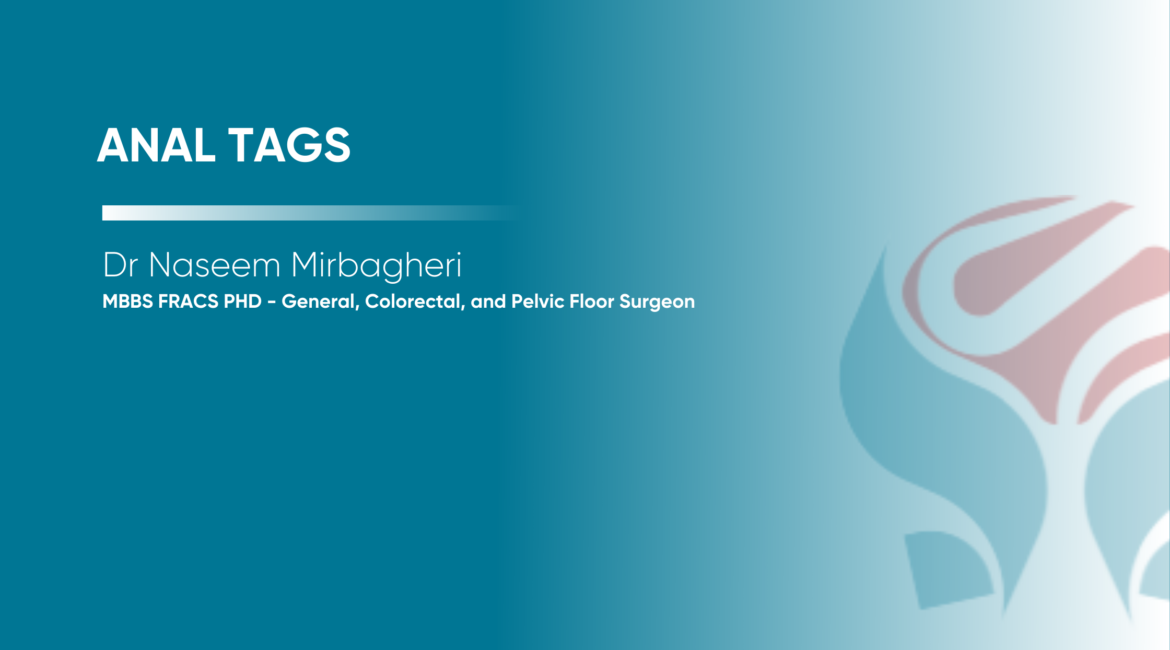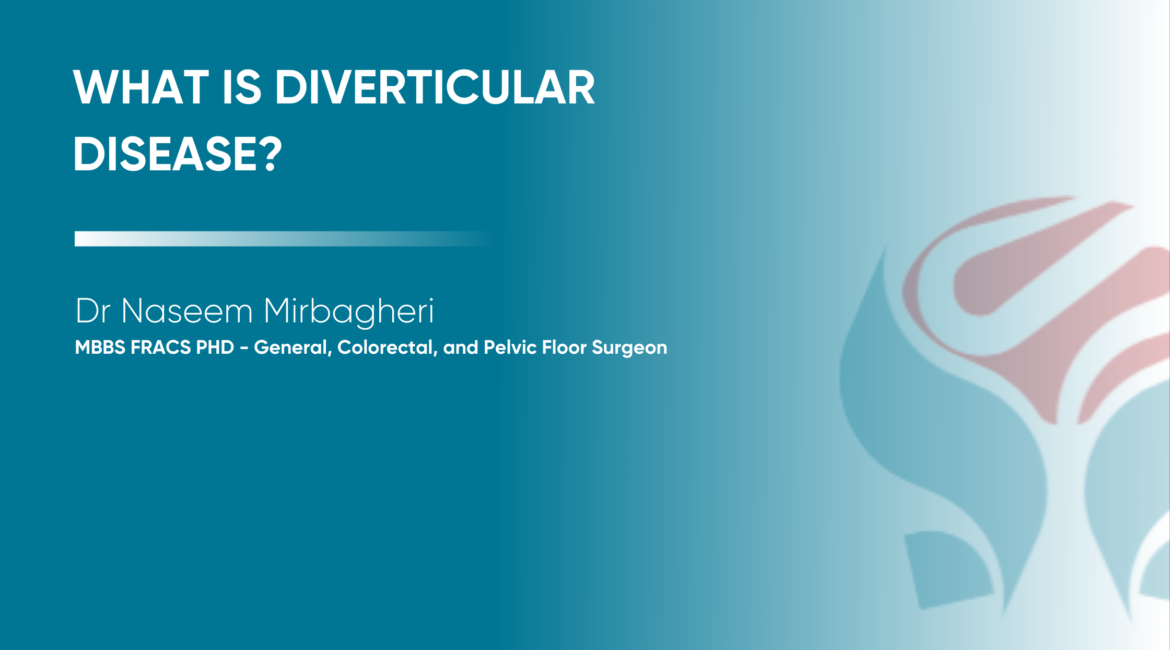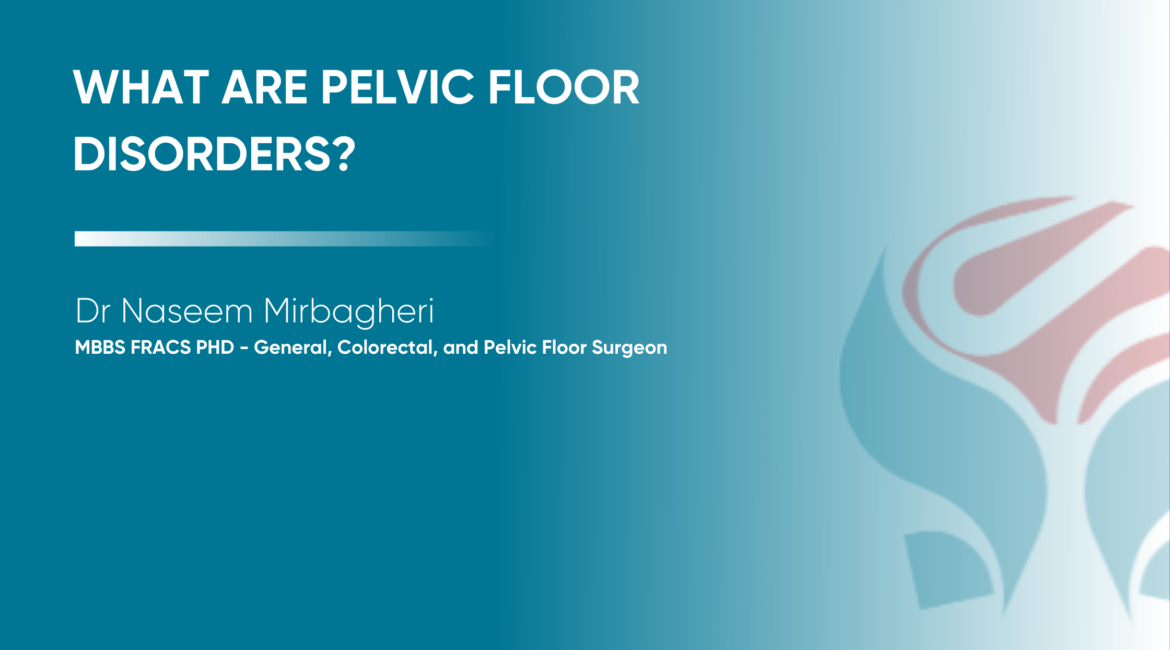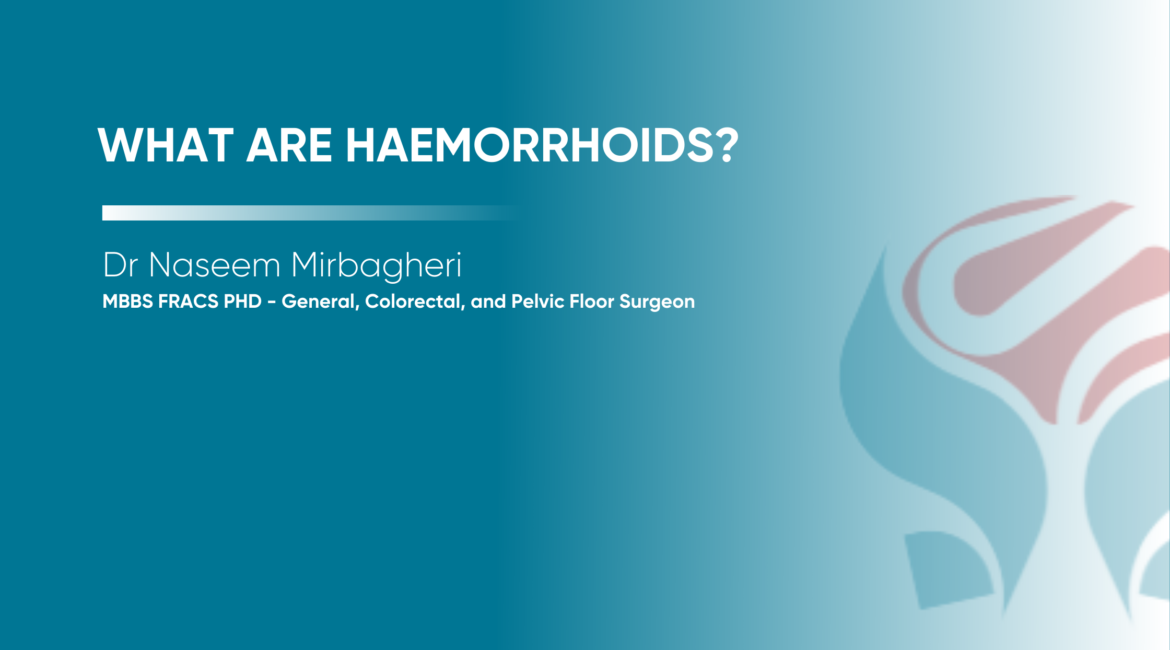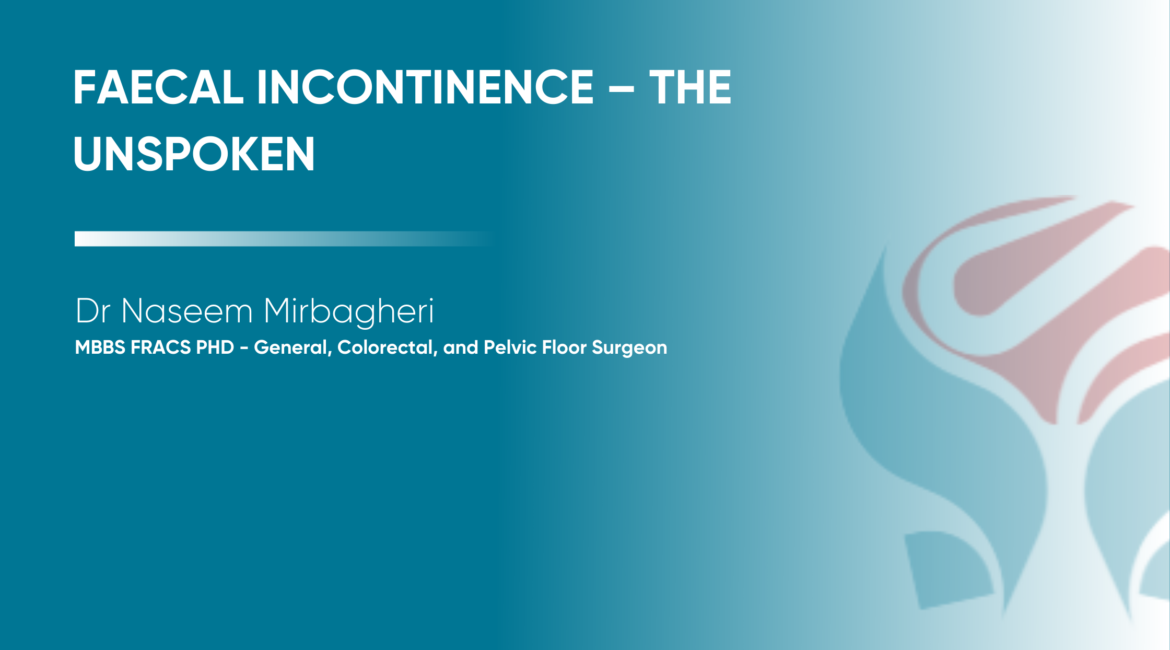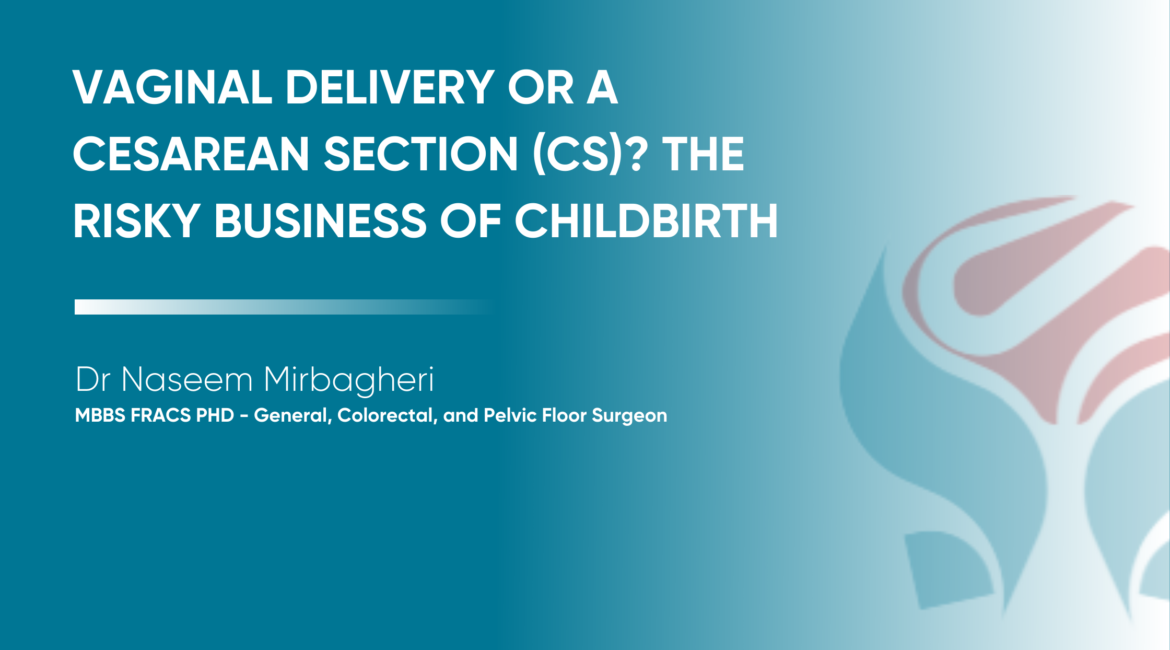One of the most common benign anal conditions is anal tags. These are just stretched skin around the anal area, usually as a result of past or existing haemorrhoids. There are NOT actual haemorrhoids but a remnant of skin from swelling associated with haemorrhoid disease in the past. Other...
What is diverticular disease?
What is diverticular disease? Diverticular disease refers to the little pockets or pouches that form in the bowel usually from the weakening of the bowel wall. This condition is mainly seen in the sigmoid colon (large bowel on the left side). This condition is very common in Australia and commonly...
What are Pelvic Floor Disorders?
There are three groups of pelvic floor problems: 1. Urinary incontinence related to bladder dysfunction 2. Faecal incontinence related to dysfunction of the anal canal, the rectum or both. 3. Pelvic Organ Prolapse can be related to the prolapse of either bladder, vagina, uterus, the rectum or both. Patients can...
What are Haemorrhoids?
Haemorrhoids are normal part of our anal canal anatomy, we all have them. They act as a cushion in our anal canal and help us with fine continence, e.g. when you cough, they get filled up with blood and help make the anal canal wind and water tight. Haemorrhoids are...
Faecal Incontinence – the unspoken
https://www.abc.net.au/radionational/programs/healthreport/faecal-incontinence-and-world-first-non-identical-organ-swap/11268068 Listen here to Dr Naseem talking about faecal incontinence on radio national with James Bulleen
Vaginal delivery or a Cesarean section (CS)? The risky business of childbirth
Age and parity highest risk for pelvic floor dysfunction - 10% at age 40 and 50% by age 80 with at least one pelvic floor symptoms - Pregnancy effect on pelvic floor: hormononal effect + weight of the fetus, upto 6 weeks postpartum can have some degree of prolapse due...
Women in Surgery
At a recent colorectal journal club in Melbourne (photo below) , I realised how there is still a significant gender gap in Colorectal Surgery. As women colorectal surgeons, we are in a unique position to mitigate the embarrassment faced by most women when presenting with anorectal symptoms. My patients often...
Cancer screening in Australia for people with a family history of colorectal cancer
Last year, my colleagues and I published a review article in Australian Journal of General Practice about current Australian guidelines on screening patients with no symptoms of bowel cancer which happen to have a family history of bowel cancer. I have attached a copy of the article, which is available...
Faecal Incontinence- is the problem in the mind?
In this study, the authors looked at the functional brain MRI images of patients with faecal incontinence and compared them to healthy individuals. When the rectum in these individuals was stimulated, the response observed in the brain was somewhat different to that seen in healthy individuals. This suggests that the...

